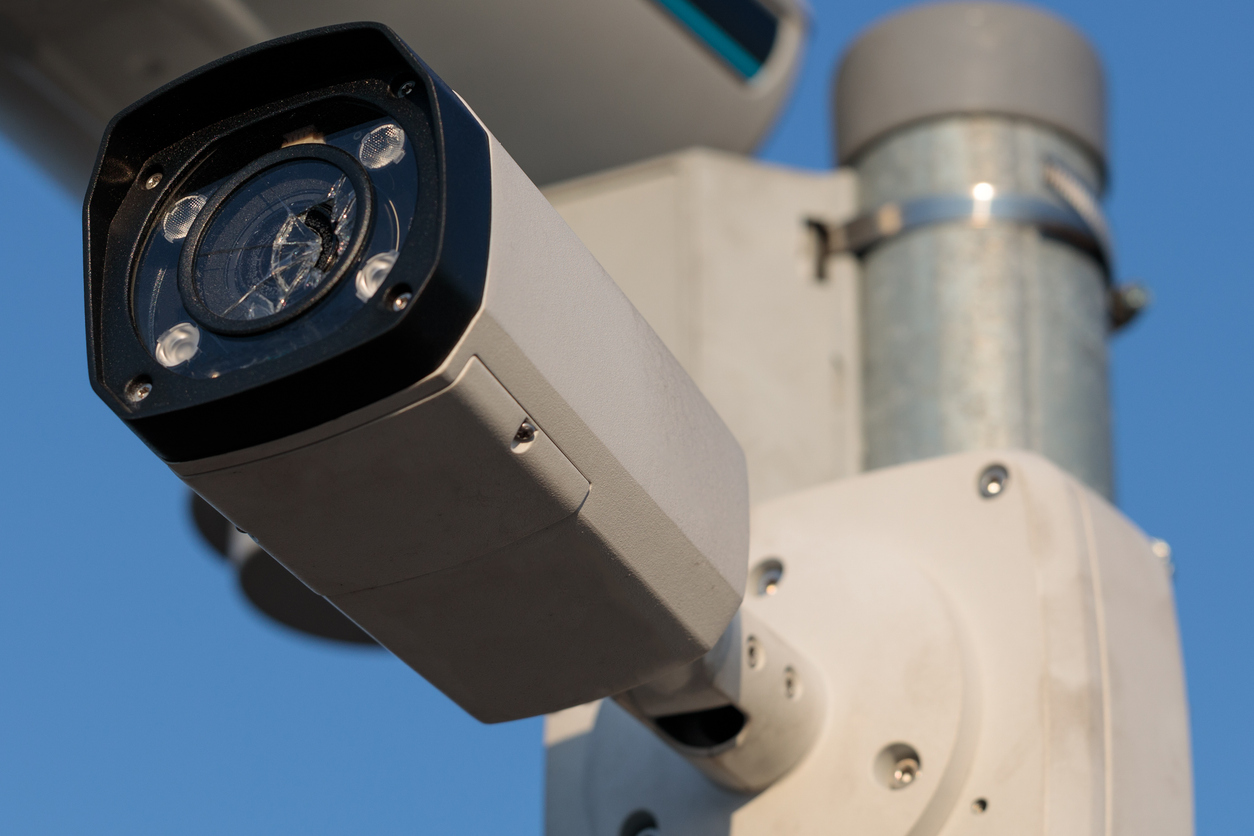Service
Negligent Security
Understanding Your Rights in Houston’s Negligent Security Claims
In Houston’s busy cityscape, safety should be a top priority. However, negligent security poses a threat to individuals, leaving them vulnerable to preventable crimes. This occurs when property owners fail to fulfill their duty of care, which is taken seriously under Texas law. Negligent security goes beyond just inadequate lighting or lack of security cameras; it reflects a significant failure on the part of property owners to protect their visitors and tenants.
It is important for those affected by negligent security to understand the legal framework in Houston. By learning about the responsibilities of property owners according to Texas statutes and premises liability law, victims can empower themselves to seek justice and the compensation they deserve.

Legal Implications of Negligent Security in Houston, Texas
Negligent security, a critical aspect of premises liability, places a considerable burden on property owners in Houston to ensure the safety and security of their premises. Texas law, particularly through statutes and judicial precedents, outlines clear expectations for property owners to prevent foreseeable harm. This responsibility is not limited to residential properties but extends to commercial and public spaces, where the risk of criminal activity necessitates vigilant security measures.
How Does the Texas Property Code Influence Premises Liability Cases?
The Texas Property Code § 92.153 mandates essential security devices for residential properties, such as window latches, door locks, and viewer peepholes. While this statute provides a foundational layer of security requirements, the broader legal framework of premises liability expands these obligations to include a wide array of security measures, tailored to the nature of the property and the foreseeable risks associated with it.
Identifying Liable Parties in a Houston Negligent Security Case
It is crucial for people considering legal action to understand who is responsible in cases of negligent security in Houston. The range of liability in negligent security includes various property owners and organizations that are responsible for maintaining a safe environment. By exploring this issue, we can identify the potential entities that could be held responsible when security failures result in personal injury or harm.
Who Might Be Held Accountable?
The obligation to provide a safe setting to prevent criminal actions extends to various owners and managers, including:
Commercial Property Owners: Operators of shopping malls, retail stores, and office buildings must implement adequate security measures to protect customers and employees. Failure to do so can result in liability for any incidents that happen due to this neglect.
Residential Property Managers: Apartment complex owners and residential housing managers are required to maintain secure living conditions for their residents. This includes proper lighting, secure locks, and, in some cases, security personnel.
Entertainment Venues: Owners of bars, nightclubs, concert halls, and stadiums have a heightened duty to ensure the safety of their guests, given the large crowds and potential for disorder.
Educational Institutions: Schools and universities must protect their students and staff by providing safe campuses. This includes monitoring access points and maintaining a secure environment.
Public Transportation Systems: Operators of subway stations, bus terminals, and parking garages are responsible for ensuring these areas are safe from foreseeable criminal activities.
Hospitality Industry: Hotels and motels must protect their guests from harm while on their property by implementing adequate security measures.
Understanding Foreseeability in the Context of a Property Owner’s Duty
In Texas, negligent security cases rely heavily on the concept of foreseeability. This means that property owners are legally obligated to prioritize the safety of their premises by being aware of local crime rates and potential hazards. They must take reasonable measures to ensure security, not just react to incidents but actively work to prevent them.
How Does Foreseeability Influence a Property Owner’s Responsibilities?
Foreseeability means that property owners should identify and address risks that could cause harm. This includes evaluating their properties for vulnerabilities such as inadequate lighting, poor access control, or the absence of surveillance systems, and taking appropriate action. The legal expectation is not to guarantee absolute safety, but to demonstrate a reasonable effort in reducing foreseeable dangers.
Texas law emphasizes the duty of care, considering the balance between known risks and the feasibility of preventive measures. In areas with higher crime rates, there is a greater expectation for security measures like hiring security personnel or installing advanced surveillance systems. In lower-risk areas, the focus may be on ensuring that physical infrastructure like locks and lighting is sufficient to deter potential threats.
The interpretation of foreseeability in premises liability cases by the judiciary highlights the need for a nuanced approach in determining liability. It is not solely about the possibility of a crime occurring, but whether the property owner took appropriate steps based on what they could reasonably anticipate. This approach ensures that each case is evaluated based on its unique circumstances, taking into account the specifics of the property and the actions of the property owner.
How Can I Pursue a Negligent Security Claim in Houston?
When you’re confronted with the repercussions of a negligent security incident in Houston, understanding the steps to navigate your legal claim can significantly influence the outcome. The process involves several stages, each crucial to building a strong case for justice and compensation.
The moments following an incident are critical. Here’s what you need to prioritize:
Report the Incident
Lodging an official report with the local authorities and the property management is important. This serves as a formal acknowledgment of the incident and is crucial for legal proceedings.
Seek Medical Attention
Prioritize your health by getting medical treatment for your injuries. Medical records will serve as concrete evidence of the impact of the incident and are essential for substantiating your claim.
Document Everything
Compile a comprehensive file of the incident, including photographs, witness statements, and personal notes detailing the event. This compilation of evidence will form the cornerstone of your legal case.
Understanding Your Rights and Legal Options
Consult with a Legal Professional: Working with an attorney early on can demystify the legal landscape and set a strategic course for your claim. Legal counsel can offer invaluable advice tailored to the specifics of your situation.
Evidence Gathering: Amassing a strong body of evidence is critical. This includes CCTV footage, witness testimonies, and any other material that can substantiate the negligence of the property owner.
Assessing Damages: A thorough evaluation of your losses, both immediate and long-term, is essential. This includes medical expenses, lost wages, and non-economic damages like pain and suffering.
Navigating the Legal Process
The path through legal proceedings requires careful navigation. Here’s what to expect:
Filing a Claim: The first step of your legal pursuit starts with filing a claim against the negligent party. This document describes the basis of your claim, the negligence encountered, and the resulting damages.
Negotiations and Litigation: Depending on the position of the opposing party, you may enter into settlement negotiations, aiming for a resolution that adequately compensates for your losses. If a settlement isn’t reached, the case may advance to trial, where the complexities of litigation will unfold. Here, the merits of your case will be examined in detail, from the negligence of the property owner to the direct relationship to your injuries.
Why Is It Important to Have Legal Representation for Negligent Security?
After an incident involving negligent security, it’s important to take several important legal steps. Lawyers who understand these kinds of cases can guide you through the legal process, making it easier to deal with the complexities of the law. They help in several ways:
Understanding the Law
Lawyers have a solid grasp of the rules and past legal decisions that affect your case. They can look at what happened to you and compare it with local laws to make sure every important detail is considered.
Handling Legal Steps
From the start to the end of your case, having a lawyer ensures you follow all the steps correctly. This includes meeting important deadlines, like when you need to file your claim, and dealing with insurance companies or other lawyers in a way that protects your interests.
Seeking Fair Compensation
A lawyer can look at all the ways the incident has cost you, including your medical bills, any income you lost, and how it has affected your life. They work to get you a fair amount that covers everything you’ve gone through.
Supporting You
Lawyers do more than just work on your case. They support you by taking on the stress of the legal process, so you can focus on getting better.
In situations where security wasn’t what it should have been, and you’re hurt as a result, the help and knowledge of a lawyer can make a big difference. They’re there to fight for what’s fair for you and to help make sure others are kept safer in the future.
Ready for Your Next Step? Reach Out to McKinnon Law
If you’re dealing with the aftermath of a negligent security incident in Texas, know that you’re not alone. At McKinnon Law, we offer our deep knowledge of all types of personal injury law to guide you through these challenging times. Our team is dedicated to providing you with the support and legal knowledge you need, crafted to fit your unique situation.
Whether you’re pursuing justice for a negligent security case, seeking advice on business-related legal matters, or looking for guidance in real estate transactions, McKinnon Law is ready to help. We focus on your rights and interests, ensuring a tailored approach to address your specific needs.
Navigating the legal system can be daunting, but with McKinnon Law, you have a team ready to support you every step of the way. Contact us today to discover how we can assist you in personal injury, business law, or real estate law. Let’s work together to achieve the outcome you deserve.
Office Hours
Daily - 9:00 am to 5:00 pm
Sunday - 08:00 am to 11:30 am
Holidays - 08:00 am to 3:00 pm
McKinnon Law, PLLC
Contact Info
1776 Yorktown Street, Suite 425
Houston, Texas 77056
(832) 810-3664
